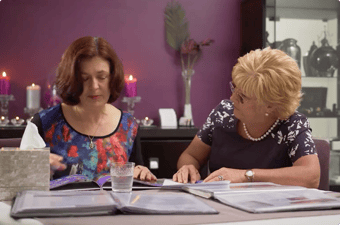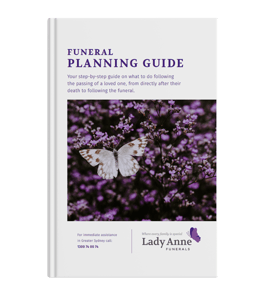After the funeral and the wake, the next hardest task to get through is dividing your loved ones possessions. These possessions often hold more sentimental value than their material value making the process delicate and likely stressful. The absence of prior arrangements such as a formal will can make it even more difficult, raising tough questions like: Who should be given what? What should we throw away? What should we keep?
The most important factor that will help the process is good family communication. Not every family talks openly with each other and often this does not change after a loved one passes away. Past events such as divorce, remarriage, relocation interstate or even abroad makes the entire process tedious and stressful. Sometimes it results in conflict. Effective communication is difficult but the good news is that it’s not impossible! Implementing some simple strategies, like the ones below, can ease the strain for everyone involved.
1. Choose a way to contact people
The first few weeks after the funeral arrangements can be a bit of a blur. To avoid overwhelm, decide the best ways in which you, the family, the friends and any carers can talk with each other and consider setting a date for when you divide the belongings. There is a lot of important information to be shared so decide how you can contact one another. Every family will be different; it may be via telephone, Skype, email or face-to-face. In a time when most people are a bit distracted, it's good to know where you can reach them to share information easily and keep everyone in the loop.
2. Elect a ‘spokesperson’
Consider choosing one person that can communicate to legal and financial professionals if the need arises (e.g. debt settlements). Your family ‘spokesperson’ can act on behalf of everyone and is more useful having one person calling rather than 5, 10 or more people on a daily basis. This person is normally elected in the Will to carry out any directions, though if no one is elected, it normally gets assumed by someone close to the person, family or family friend.
3. Make a telephone-tree
Make a family ‘telephone-tree’ so that each member knows who to call if information needs to be shared quickly. This takes the pressure off one person that has found themselves as the ‘go-to-person’. They might be strained to repeat the information over and over again and a telephone-tree can help to share information amongst the family without adding to the difficulty of the situation.
4. Make a ‘time capsule’
If dividing possessions becomes too tedious and stressful or is raising too much conflict, consider placing all the possessions into long-term storage. Agree upon a date where the family involved can meet again to divide the belongings under less stressful circumstances. It may be weeks, month or years ahead but it gives everybody the chance to grieve and approach the process with a clear mind. You’ll all appreciate having not made any irrational decisions under conflict or stress.
5. Communication is more than words
Remember that talking is not the only way to communicate. Silence carries meaning too; it does not mean those who are less talkative care less, they might just deal with the process differently. Make sure everybody gets a chance to voice their opinion. This may mean having a private conversation and simply asking “Is there anything you would like to keep/share/throw away?”. Going through a photo box, and the belongings of those who aren't with us anymore can be an impossible task, though using it as time to reminisce and celebrate their life can really provide some closure and a belly laugh if you're ready.
For more information, support and to join a community of people currently in the process of similar experiences, come along to our Facebook group. You are welcome to make conversation anytime. Just click the button below for access.










